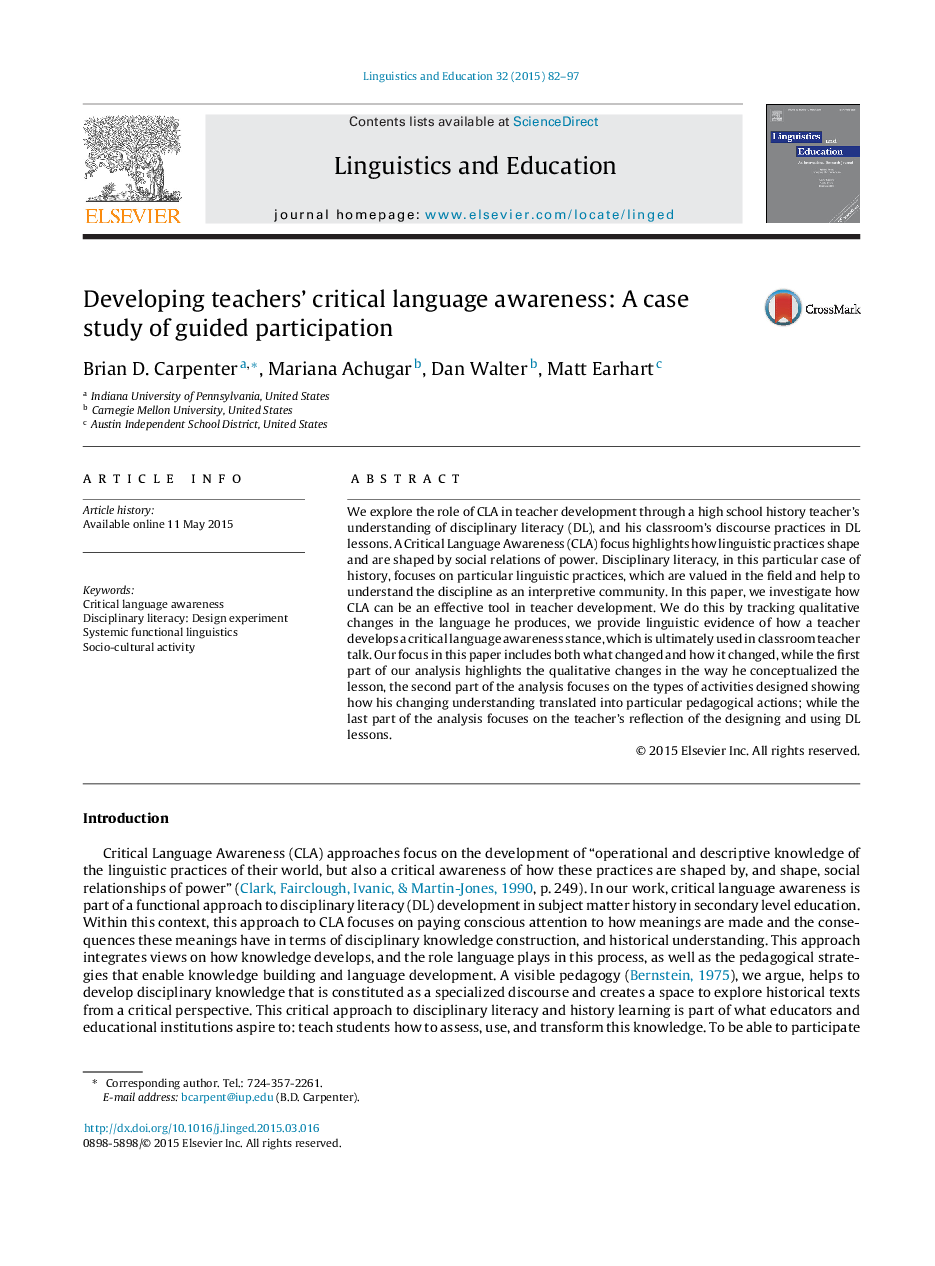| Article ID | Journal | Published Year | Pages | File Type |
|---|---|---|---|---|
| 366062 | Linguistics and Education | 2015 | 16 Pages |
•We examine the interaction between teacher and researchers in a collaborative design experiment.•We examine a functional approach to disciplinary literacy.•Successful collaboration requires a fluid understanding of novice/expert.•Knowledge construction is time and energy intensive.
We explore the role of CLA in teacher development through a high school history teacher's understanding of disciplinary literacy (DL), and his classroom's discourse practices in DL lessons. A Critical Language Awareness (CLA) focus highlights how linguistic practices shape and are shaped by social relations of power. Disciplinary literacy, in this particular case of history, focuses on particular linguistic practices, which are valued in the field and help to understand the discipline as an interpretive community. In this paper, we investigate how CLA can be an effective tool in teacher development. We do this by tracking qualitative changes in the language he produces, we provide linguistic evidence of how a teacher develops a critical language awareness stance, which is ultimately used in classroom teacher talk. Our focus in this paper includes both what changed and how it changed, while the first part of our analysis highlights the qualitative changes in the way he conceptualized the lesson, the second part of the analysis focuses on the types of activities designed showing how his changing understanding translated into particular pedagogical actions; while the last part of the analysis focuses on the teacher's reflection of the designing and using DL lessons.
